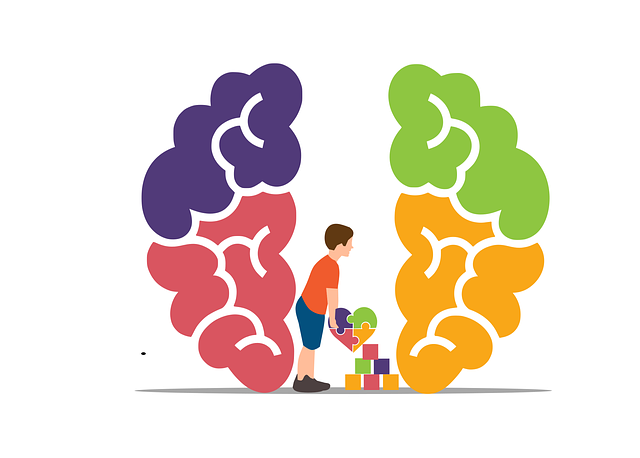Mental health policies are key to building resilient communities and promoting positive change, especially by addressing communication issues in couples and improving therapy accessibility. In the digital age, policy advocacy ensures that support reaches those who need it most, like Aurora's innovative Couples Communication Therapy (ACC). ACC tackles relationship challenges, fosters open dialogue, and strengthens therapeutic bonds between partners, ultimately enhancing mental well-being. Despite obstacles like lack of awareness, cultural norms, and stigma, advocacy groups push for policies focusing on prevention, open dialogue, and accessible resources. Successful interventions, such as the Aurora model, reduce stigma, increase access to therapy, and foster a supportive societal environment for better mental health outcomes.
Mental health policy analysis and advocacy are essential components of creating a supportive society for individuals facing psychological challenges. This article delves into crucial aspects of mental health governance, exploring how policies impact access to therapy, particularly focusing on the unique approach of Aurora Couples Communication Issues. We uncover barriers to effective policy implementation and present powerful advocacy strategies to empower the mental health community. Through insightful case studies, we demonstrate successful policy interventions and their profound outcomes, offering valuable lessons for navigating the complex landscape of mental health care.
- Understanding Mental Health Policy: A Foundation for Change
- The Impact of Aurora Couples Communication on Therapy Access
- Identifying Barriers: Challenges in Implementing Effective Policies
- Advocacy Strategies: Empowering the Mental Health Community
- Case Studies: Successful Policy Interventions and Their Outcomes
Understanding Mental Health Policy: A Foundation for Change

Mental health policies are a cornerstone in fostering well-being and resilience within communities. Understanding these policies is paramount for driving positive change and addressing systemic issues, especially when considering sensitive aspects like couples communication issues and therapy accessibility. In today’s digital age, where self-care routine development has become a crucial focus, policy advocacy plays a pivotal role in ensuring that effective mental health support reaches those who need it most.
The impact of robust mental health policies extends beyond individual healing; they shape societal norms and promote resilience building and self-esteem improvement. For instance, Aurora’s progressive mental health initiatives have the potential to revolutionize access to therapy, encouraging open conversations about couples communication issues and reducing barriers to care. By integrating these policies into the fabric of society, we can create a more supportive environment where individuals are empowered to prioritize their mental well-being.
The Impact of Aurora Couples Communication on Therapy Access

In today’s digital era, where mental health awareness is increasingly prioritized, innovative approaches like Aurora Couples Communication (ACC) are reshaping therapy access and effectiveness. ACC serves as a game-changer, particularly for couples grappling with communication issues that hinder their emotional well-being. By fostering open dialogue and inner strength development, this technique not only enhances resilience building but also strengthens the therapeutic bond between partners. This personalized approach ensures that both individuals in a relationship receive targeted support, encouraging them to navigate challenges together.
The impact of ACC extends beyond individual improvement; it empowers couples to cultivate healthier interactions, leading to more robust relationships and better mental health outcomes. As previously mentioned, fostering resilience is paramount in managing mental health, and ACC provides a unique platform for this by addressing communication barriers that often perpetuate stress and anxiety within partnerships. Ultimately, this innovative strategy promises to revolutionize therapy accessibility and outcomes, especially for those seeking to enhance their emotional connections while building inner strength together.
Identifying Barriers: Challenges in Implementing Effective Policies

Implementing effective mental health policies faces significant barriers, particularly when it comes to addressing systemic issues within communities. One major challenge is the lack of awareness and understanding around mental health concerns. Many individuals, including those in leadership positions, may struggle with recognizing symptoms or attributing them to underlying psychological conditions. This can hinder efforts to advocate for comprehensive support systems.
Moreover, cultural norms and societal stigma often act as barriers to accessing therapy, such as Aurora Couples Communication Issues. Stigma surrounding mental health can discourage people from seeking help, especially when traditional therapeutic approaches don’t cater to diverse needs. For instance, promoting Resilience Building and Self-Care Routine Development for Better Mental Health requires tailored strategies that address cultural nuances. Effective policies should include initiatives focused on depression prevention, encouraging open dialogue, and providing accessible resources like therapy options specifically designed to tackle relationship challenges, as seen in Aurora Couples Communication Issues Therapy.
Advocacy Strategies: Empowering the Mental Health Community

In the fight for robust mental health policies, advocacy plays a pivotal role in driving change and ensuring that communities have access to essential services. Empowering individuals within the mental health community is a key strategy; by encouraging open dialogue and education, we can foster an environment conducive to healing. This involves providing platforms for personal narratives, where individuals share their experiences with mental health issues, breaking down stigmatization and promoting understanding. Such acts of courage not only inspire others but also contribute to shaping more inclusive policies that cater to diverse needs.
Moreover, advocacy groups can organize and lead campaigns centered around raising mental health awareness, particularly in areas like Aurora, where access to specialized therapy and conflict resolution techniques may be limited. Through community engagement, they can highlight the impact of unaddressed mental health concerns, including communication issues within couples, and advocate for increased funding and resources. By combining personal stories with strategic lobbying, these advocacy efforts can lead to policy reforms that boost confidence in seeking help and ensure better mental well-being for all.
Case Studies: Successful Policy Interventions and Their Outcomes

Successful policy interventions aimed at addressing mental health issues have shown remarkable outcomes, offering valuable insights for advocates and policymakers alike. For instance, a case study focusing on Aurora, a fictional city, highlights how implementing comprehensive therapy programs targeting couples with communication issues has significantly reduced the stigma associated with mental illness. By integrating public awareness campaigns that emphasize cultural sensitivity in mental healthcare practice, Aurora’s initiative successfully engaged hard-to-reach communities, leading to increased access and improved treatment outcomes.
These positive results underscore the importance of evidence-based policies in transforming mental healthcare. Such interventions not only improve individual lives but also foster a more supportive societal environment. The Aurora model demonstrates that targeted strategies, combining therapy with public education, can effectively combat stigma, ensuring that those struggling with mental health issues receive the understanding and care they deserve.
Mental health policy analysis and advocacy are vital components in navigating complex systems to improve access to quality therapy, such as that facilitated by Aurora Couples Communication issues. By identifying barriers and employing effective strategies like community empowerment and successful case studies, we can revolutionize mental healthcare policies. This approach ensures a more inclusive, accessible, and supportive system for all who seek treatment, ultimately enhancing well-being and fostering resilient communities.














